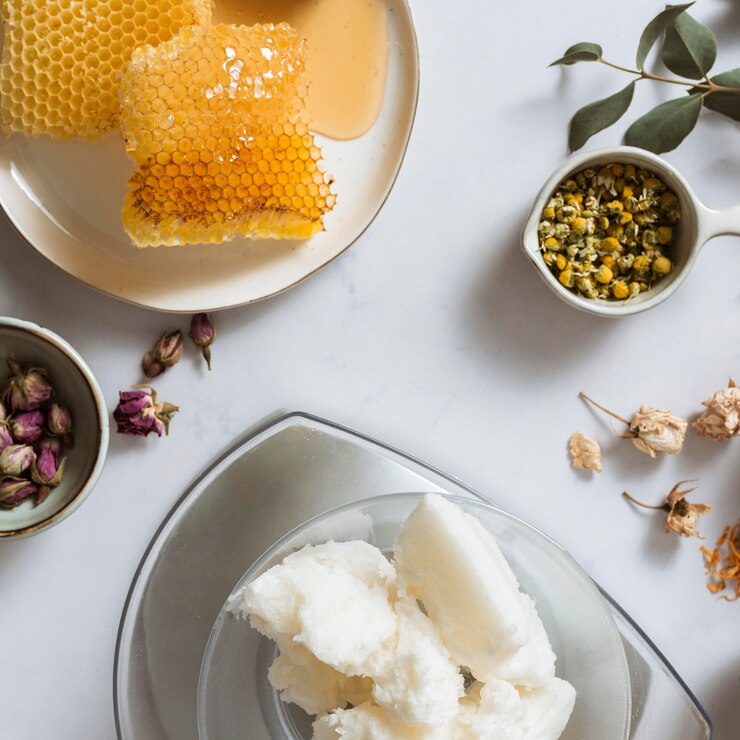In a world increasingly focused on sustainability and natural products, organic white beeswax stands out as a versatile and valuable resource. Harvested from the honeycombs of bees, this substance is renowned for its myriad uses across various fields, from cosmetics to food preservation. As more people seek eco-friendly alternatives, understanding the potential of organic white beeswax becomes essential.
What is Organic White Beeswax?
Organic white beeswax is a natural wax produced by honeybees. The wax is secreted by the bees and used to build their honeycombs. The organic variety is obtained from beekeeping practices that prioritize environmental health and animal welfare. Unlike traditional beeswax, which often retains a yellow hue due to pollen and propolis, organic white beeswax is refined to remove these impurities, resulting in a cleaner and more aesthetically pleasing product.
This white variety is particularly favored in cosmetic applications due to its appealing color and mild scent. Its unique properties make it an exceptional ingredient for various formulations, appealing to both manufacturers and consumers who prefer natural over synthetic alternatives.
The Cosmetic Industry
One of the most popular uses of organic white beeswax is in the cosmetic industry. It serves as a natural thickening agent in products like lip balms, lotions, and creams. When combined with oils and other ingredients, organic white beeswax creates a smooth texture that helps to lock in moisture, making it an ideal choice for skincare products aimed at hydration and protection.
Additionally, its emulsifying properties allow for better blending of oil and water-based ingredients, which is crucial in formulating creams and lotions. The wax also acts as a barrier on the skin, providing protection from environmental elements while still allowing the skin to breathe. This makes it particularly beneficial in products designed for dry or sensitive skin.
Natural Remedies and Healing
Organic white beeswax has been used for centuries in natural remedies. Its anti-inflammatory and antimicrobial properties make it an excellent base for ointments and salves. When combined with essential oils, organic white beeswax can enhance the healing properties of natural remedies, aiding in the treatment of minor cuts, scrapes, and skin irritations.
Moreover, it is a common ingredient in products aimed at soothing ailments such as eczema or psoriasis. The wax helps to form a protective layer over the skin, reducing moisture loss and allowing the skin to heal more effectively. For those seeking holistic alternatives, organic white beeswax provides a natural option for skincare that aligns with their health philosophies.
Food Preservation
Beyond cosmetics and healing, organic white beeswax is also gaining popularity in the culinary world, particularly in food preservation. Its ability to form a moisture-resistant barrier makes it an excellent choice for coating fruits and vegetables. By applying organic white beeswax to produce, it can help extend shelf life, reducing waste and maintaining freshness.
In addition to fruits and vegetables, organic white beeswax is often used in wrapping food. Reusable beeswax wraps, made from organic cotton infused with beeswax, provide a sustainable alternative to plastic wrap. These wraps are biodegradable and can be washed and reused, making them a perfect choice for environmentally conscious consumers.
Candles and Crafting
Another noteworthy application of organic white beeswax is in candle making. It burns cleaner and longer than traditional paraffin wax, producing little to no soot and releasing negative ions that can improve air quality. Candles made from organic white beeswax also have a natural honey scent, which adds to their appeal.
Crafting enthusiasts often use organic white beeswax in various DIY projects. Its moldable nature allows for the creation of sculptures, decorative items, and even homemade cosmetics. The wax can be melted and poured into molds, offering endless possibilities for creative expression. This versatility makes it a favorite among artists and hobbyists alike.
Environmental Benefits
The use of organic white beeswax is not just beneficial for individual consumers; it also supports sustainable practices in beekeeping. Choosing organic beeswax means supporting farmers who prioritize ecological balance and ethical treatment of bees. This can lead to healthier bee populations and, by extension, a healthier ecosystem. Bees play a crucial role in pollination, contributing to biodiversity and food production.
Furthermore, the shift towards organic white beeswax reflects a broader movement toward natural products. By opting for organic alternatives, consumers can reduce their reliance on synthetic chemicals, many of which are harmful to both health and the environment. Organic white beeswax serves as a tangible step toward a more sustainable lifestyle.
Conclusion
Organic white beeswax is truly a natural wonder with its extensive range of uses across different industries. From cosmetics and natural remedies to food preservation and crafting, its versatility is unmatched. As more individuals seek out sustainable and eco-friendly alternatives, organic white beeswax stands as a testament to the benefits of natural products.
Understanding its properties and applications not only empowers consumers to make informed choices but also promotes a healthier planet. Whether you’re a skincare enthusiast, a culinary innovator, or an eco-conscious individual, incorporating organic white beeswax into your life can provide significant benefits. Its multifaceted nature ensures that it will remain a staple in natural product formulations for years to come.





Comments